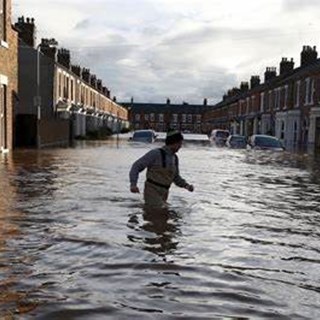
De-risking port logistics
In a Port Strategy feature, Ian McRobbie highlights the merits of optimising bulk transshipment through ‘Climate-Smart’ simulation technology, drawing on extensive project experience
8 October 2024
This article was first published in the September – October 2024 issue of Port Strategy, one of the official magazine’s of Mercator Media Ltd.
The global trade environment is evolving rapidly, and ports are at the heart of this international transformation, facing the dual challenge of optimising their operations while adhering to increasingly stringent environmental standards. Transshipment in a hub and spoke context – which involves feeder vessels relaying cargo to and from a hub port and connecting with deep-sea vessels — plays a critical role in enhancing global supply chains, ensuring the seamless movement of goods between regional and international shipping networks.
However, as the complexity of maritime logistics intensifies, ports are under increasing pressure to enhance efficiency, reduce environmental impact, and maintain competitiveness. Advanced simulation technologies have emerged as a vital tool in addressing these challenges, offering a holistic approach to validating and optimising transshipment operations, while quantifying and mitigating environmental impacts.
Transshipment is a crucial component of the global logistics ecosystem, connecting distant markets and enabling the efficient distribution of goods across continents. Ports specialising in transshipment operations act as pivotal nodes in this network, facilitating the flow of cargo through strategically located hubs. These hubs, often situated near key maritime chokepoints such as the Strait of Malacca and the Suez Canal, are vital to the efficiency and reliability of global shipping routes.
However, reliance on transshipment traffic introduces a level of vulnerability to these ports, as they are subject to fluctuations in global shipping patterns, competitive pressures, and environmental challenges. The trend of increasingly larger ships and the consolidation of shipping lines have only amplified these challenges, requiring ports to adapt their infrastructure and operations to accommodate larger vessels while maintaining efficient turnaround times. The environmental impact of these operations, including emissions, spillage, capital infrastructure changes and habitat disruption, further complicates the management of transshipment hubs.
Given the intricate nature of transshipment operations, simulation has become an indispensable tool for port operators seeking to balance efficiency with environmental stewardship. Simulation models allow for a comprehensive analysis of various operational scenarios, enabling ports to anticipate and mitigate potential bottlenecks, optimise cargo flows, and reduce environmental impacts.
Simulation can, for instance, model the effects of different metocean conditions on transshipment operations, providing valuable insights into how environmental factors such as tides, currents, and weather patterns might affect cargo handling and port throughput. By simulating these scenarios, ports can develop strategies that minimise delays and disruptions, thereby enhancing operational efficiency and resilience and reducing the environmental footprint of their activities.
Moreover, simulation enables ports to test the impact of new technologies (e.g. automation) and infrastructure developments before they are implemented, ensuring that these investments deliver the intended benefits without unintended environmental consequences. This proactive approach is critical for ports that must navigate the complex interplay between economic demands and environmental responsibilities.
Environmental sustainability and reporting is not just an added benefit but a core requirement for modern port operations. The maritime industry faces increasing scrutiny from regulators, environmental groups, and the public, demanding that ports adopt practices that minimise their ecological impact. Simulation plays a crucial role in this effort by providing a platform for ports to evaluate, substantiate and refine their environmental strategies.
For a recent Mozambique coal transshipment project, for example, simulation was used to design transshipment units that meet the stringent environmental protection standards set by international bodies such as the International Maritime Organisation (IMO) and the Marine Pollution (MARPOL) convention.
These units were equipped with anti-spillage technologies and covered conveyor systems, significantly reducing the risk of pollution during transshipment operations. This case illustrates how simulation can be leveraged to ensure that transshipment operations are both efficient and environmentally responsible.
By integrating environmental considerations into the early stages of project planning, ports can avoid costly retrofits and regulatory penalties, while also contributing to global sustainability goals. This approach aligns with broader industry trends toward decarbonisation and the adoption of green technologies, reinforcing the port’s role as a responsible steward of the environment.
BMT as a maritime consultancy specialist has long recognised the importance of a holistic approach to port operations. Spanning maritime and technology infrastructure, BMT offers a comprehensive suite of services that integrate advanced simulation tools with hard earned experience. This approach ensures that ports can achieve their operational goals while meeting their environmental targets.
One notable example of BMT’s approach is a Magnetite Transshipment Feasibility Assessment, which involved a detailed simulation of the logistics chain from mine to port. This project highlighted the value of simulation in optimising system configurations, reducing environmental impacts, and ensuring the economic viability of the transhipment operation. Similarly, the Samalaju Port Development in East Malaysia demonstrated BMT’s ability to provide actionable insights that guide the design and implementation of environmentally sustainable port infrastructure.
The need for demonstrable efficiency and sustainability in transhipment operations is more pressing than ever. Simulation technology offers a powerful tool for achieving these goals, enabling ports to navigate the complexities of modern logistics while minimising their environmental footprint.
By embracing a de-risked approach that integrates advanced ‘climate-smart’ simulation technology combined with deep industry knowledge, BMT has a proven track record of helping ports around the world overcome logistical constraints and achieve long-term success. In doing so, BMT also enhances the resilience and efficiency of regional and global trade networks while contributing to the broader goal of sustainable development in the maritime industry.

Ian is the Programme Manager (APAC) – Ports and Maritime Infrastructure for BMT. Ian is responsible for BMT’s maritime infrastructure portfolio for the APAC region; the portfolio ranges from traditional maritime facilities design, dredging, and coastal studies to overseeing studies for offshore wind farm developers.
He has over 30 years of project delivery experience in the maritime sector, including over 10 years as a Project Director, leading the oversight and delivery management of complex, high-value, high-risk maritime projects.
Ian’s breadth of project experience varies from strategic advisory advice, economic viability, and due diligence to leading the project delivery of detailed design work for D&C and EPCM delivery models. He constantly strives to manage risk and maximise project value for his clients and deconstructs complex problems into clear workstreams.
Ian has extensive project delivery experience of large-scale maritime facilities and port developments for public and private sector clients in the fields of port development and marine terminal planning, MOFs, bulk materials import/export facilities for iron ore and mineral concentrates, and oil and gas terminals.
Ian’s core role is to leverage BMT’s significant deep domain knowledge in the maritime sector for existing and new customers in Australia and Asia, particularly in the carbon reduction and energy transition strategies for their current and future assets.

Greg Fisk
The DCN spoke to our climate change risk, resilience and adaptation expert about preparing for the impacts of a changing climate.

N/A
With the UK and beyond facing unprecedented consequences from rising water levels and climate amelioration, BMT are helping our clients in their need for flood alleviation, prediction, mapping and mitigation. James While talks about 5 ways we can assist our clients.

Jaret Fattori
Jaret Fattori's article in Port Strategy discusses how ports are adapting to climate change and IFRS S-2 regulations. Emphasising the shift towards sustainability through digital integration, decarbonisation, and innovative fuel alternatives, he explores the significant role of collaboration in advancing port sustainability and innovation.

Ian McRobbie
Ian McRobbie, our Programme Manager for Ports and Maritime Infrastructure, was interviewed by Port & Harbors to discuss how infrastructure companies are collaborating with ports to enhance port infrastructure and operations.